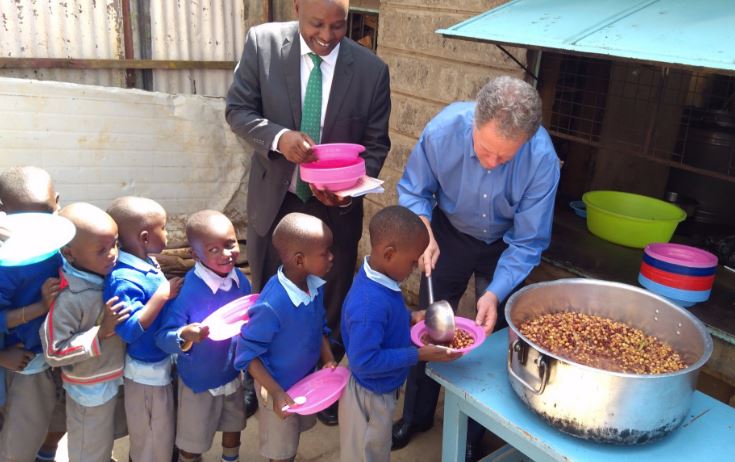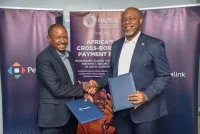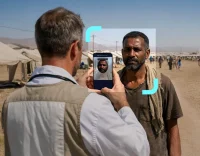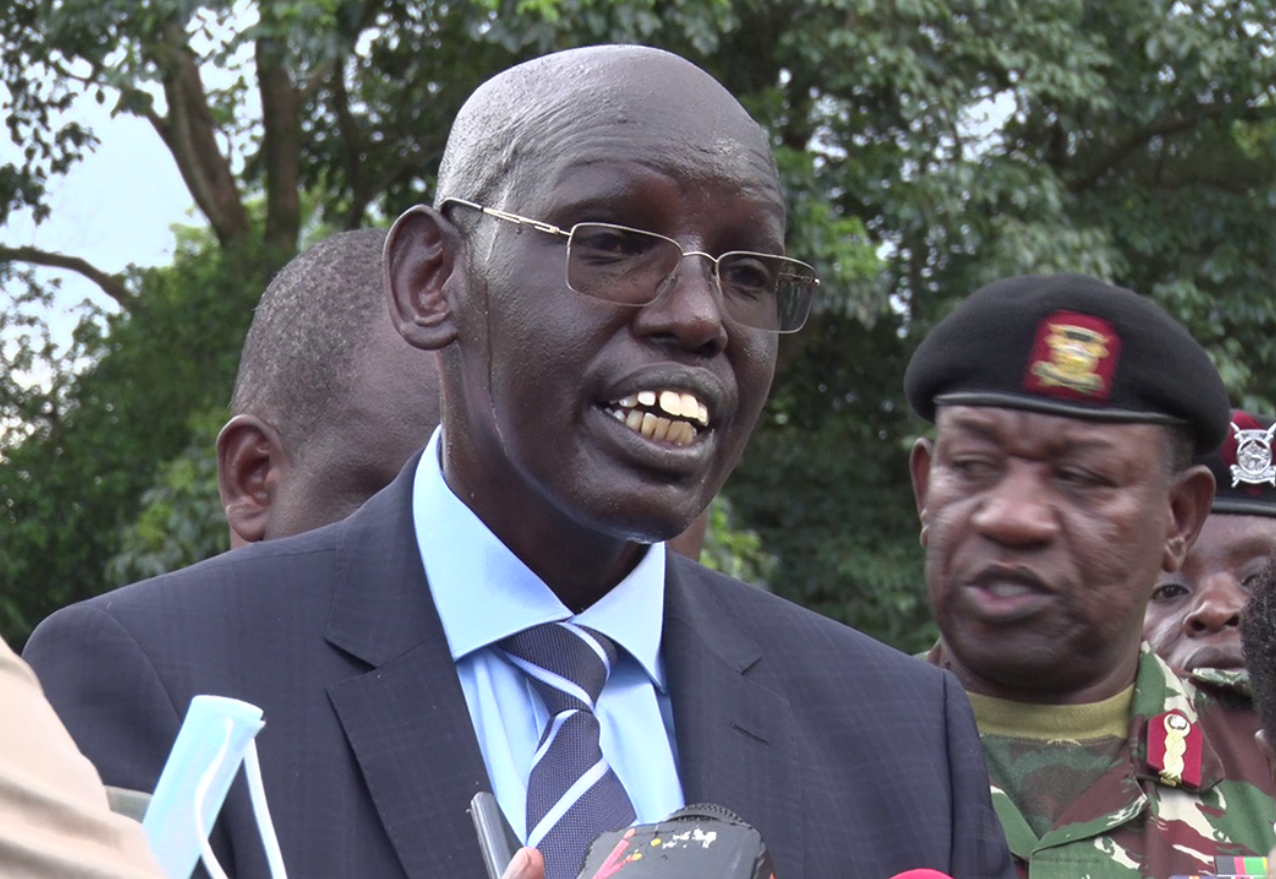The government has formally taken over from the United Nations World Food Programme (WFP) responsibility for providing lunches to 1.6 million school children in arid and semi-arid areas of the country.
Since the 1980s, school meals in Kenya have been the joint responsibility of WFP and the ministry of Education.
“WFP is extremely grateful to the Government of Kenya for taking up this noble responsibility. We know that school meals are one of the most important and dependable safety nets for children and their families in Kenya,” said WFP Country Director and Representative Annalisa Conte. “They are a powerful incentive for families to invest in education, despite their livelihoods being under stress. A daily hot lunch means more children attend school, they stay the whole day and get an education that helps them become more productive in future.”
Conte was speaking Tuesday at a ceremony in Isiolo County to mark the formal handover of school meals to the ministry of Education. Conte stressed that WFP is grateful to all its donors who made school meals possible in Kenya for close to four decades.
Dr Richard Belio Kipsang, Principal Secretary of Education, said at the ceremony on behalf of the Cabinet Secretary for Education Amina Mohamed: “As the ministry takes over from WFP, we are aware of the importance of this programme. We are also conscious of the challenges that need to be addressed to ensure the continued success of the programme.
“School meals need sufficient and stable funding; an effective governance and management structure; adequate capacity development support for food procurers and smallholder farmers to provide suitable and diverse produce; government participation at all levels as well as that of communities and parents; and infrastructure and environmental safety in schools.”
Kenya launched a Home-Grown School Meals programme in 2009 as a nationally-owned and government-led programme and started giving hot meals to more than half a million children who were initially fed through WFP.
“I’m delighted to witness this moment,” said Paul Tergat, a WFP Goodwill Ambassador Against Hunger and former marathoner who himself received school meals as a child. “This shows the government is putting the future of the country first. I came from a poor family. The school meal gave me the motivation to attend school, complete school and work hard.
“Through this, I later discovered my running talent, exploited it to the top level and now I’m at the apex of sports leadership both locally and internationally. I’m forever grateful and will continue to proudly represent WFP and the good that it stands for,” he said.
Home-Grown School meals are cash-based, meaning that schools receive a cash allocation each term from the Treasury to buy food for school children from local markets. This model boosts not only school attendance but also local economies and agricultural production.
Having completed the transition of all the semi-arid areas in 2012, the government started gradually taking over the more arid counties in 2015, starting with Isiolo County in 2015 and completing the process in June this year.
For the current financial year (2018/2019), the government has set aside Ksh 2.4 billion for school meals.
Some 1.6 million pupils at more than 4,000 schools will each receive a hot lunch daily under the school meals programme this year – now all financed by the Government of Kenya.













1 Comment